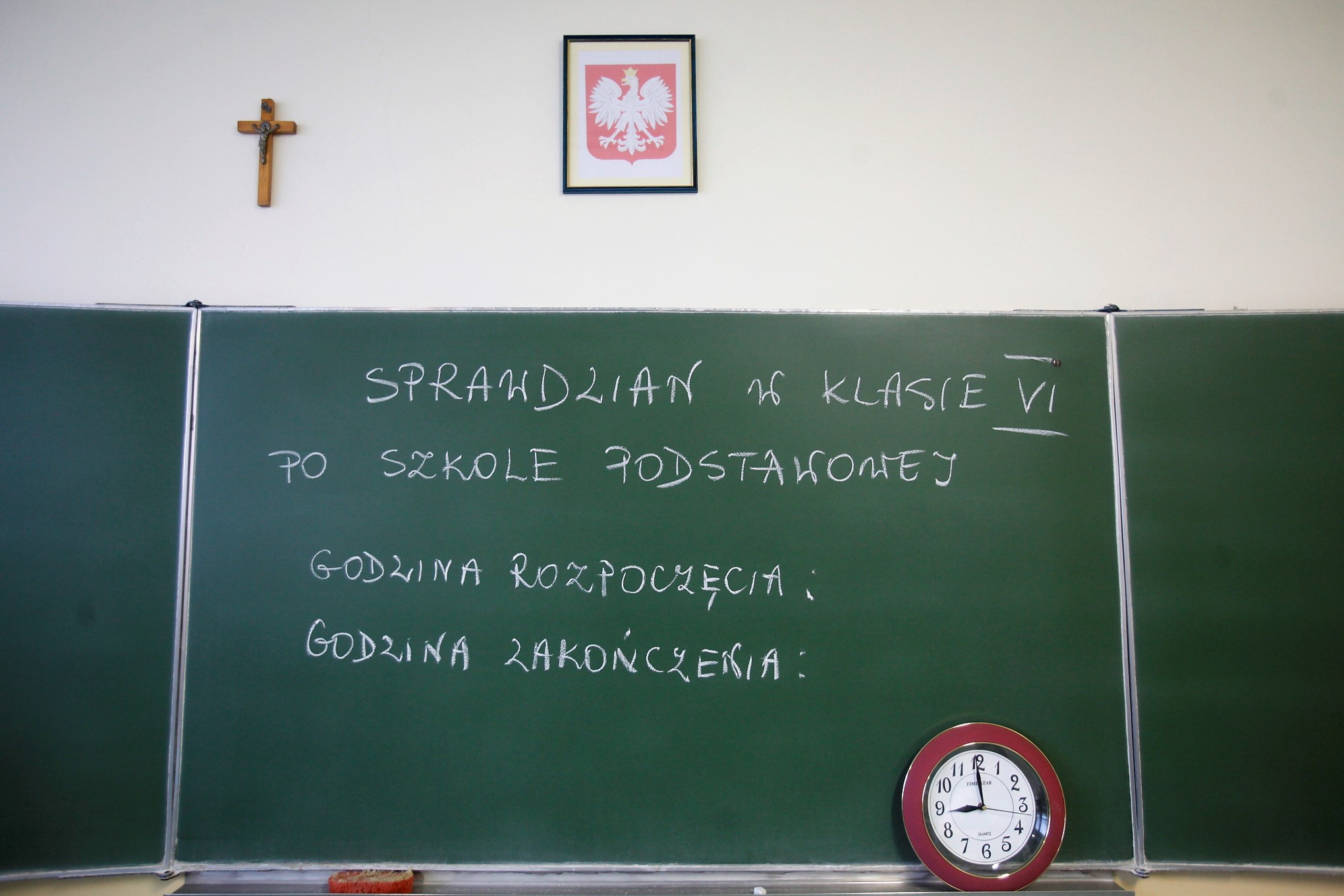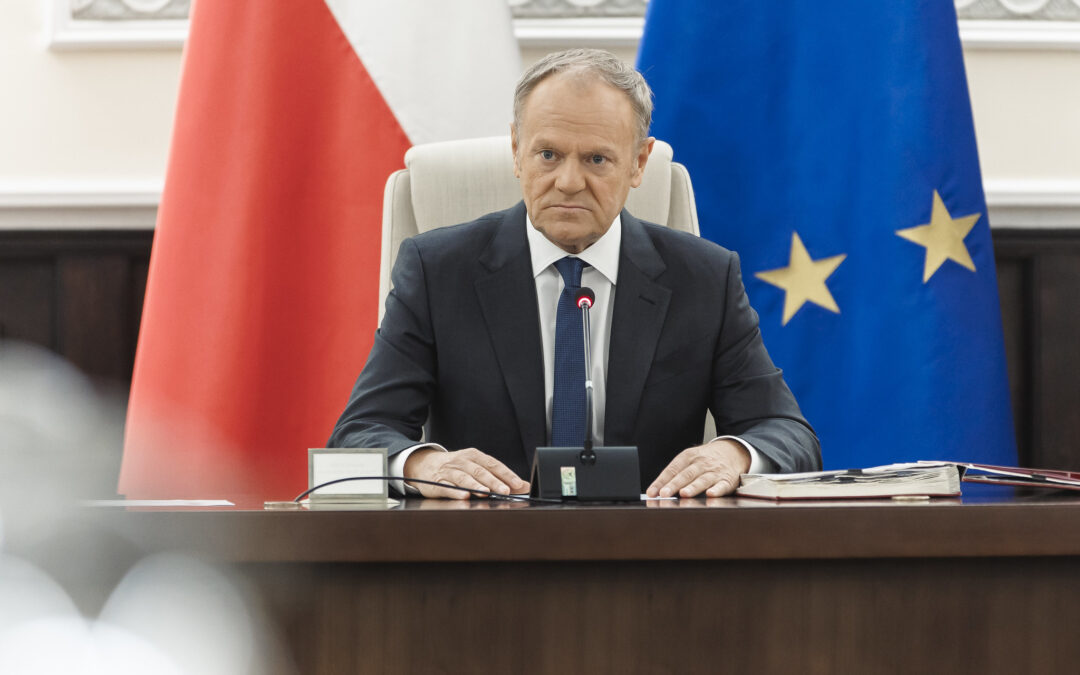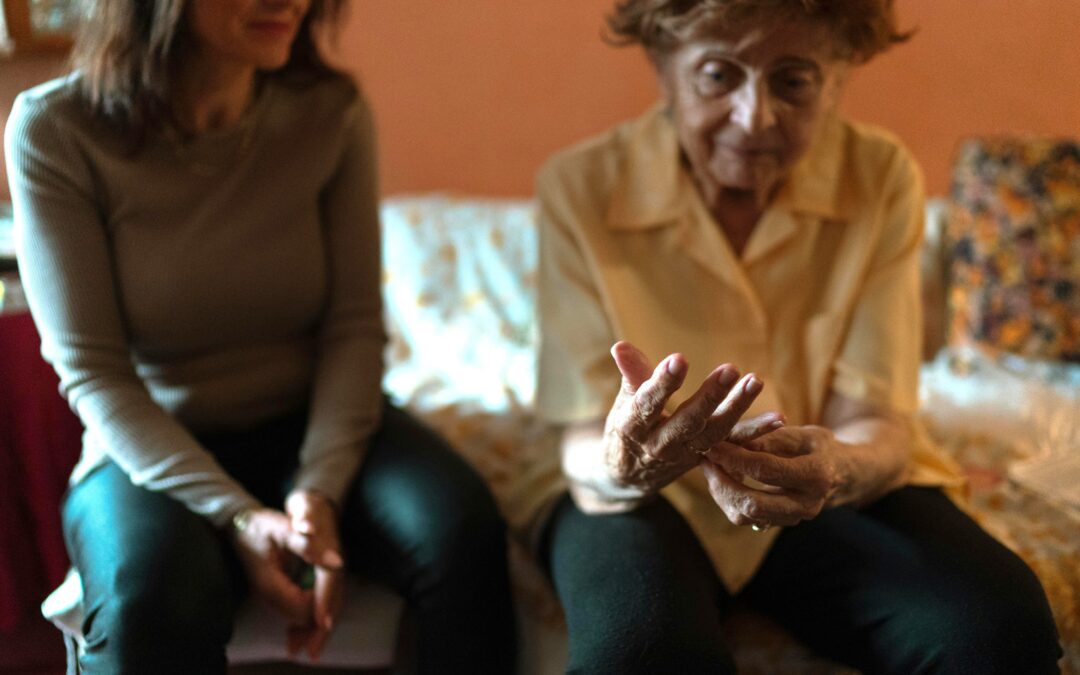As Poland’s government prepares to make it compulsory for all children who choose not to take Catholic catechism classes in school to instead study ethics, the education ministry has chosen a number of Catholic universities to train more teachers in the latter subject.
The development has raised concern that the national-conservative ruling Law and Justice (PiS) party – whose leader has said that the church is the “repository of the only moral system commonly known in Poland” – is seeking to add a religious flavour to the theoretically secular subject of ethics.
Currently, pupils can take optional religion (meaning Catholic catechism) or ethics classes, or choose to do neither. However, earlier this year the education minister, Przemysław Czarnek, announced that he intended to make it compulsory for all students to choose at least one of the two subjects.
Taking neither option “has become quite common in big cities”, said Czarnek. This, he warned, had encouraged young people to take part in events “that are completely unreflective about life”, such as recent mass protests against a near-total ban on abortion, which were disproportionately supported by young people.
“Studying religion or ethics will be compulsory so that young people receive some kind of message about a system of values,” Czarnek told conservative newspaper Gazeta Polska.
Czarnek’s plan, however, raised concern that there were not enough ethics teachers to offer lessons to so many pupils. Some worried that this would effectively force pupils into taking Catholic catechism classes, attendance of which – once almost universal – has been declining rapidly.
In the 2019/20 academic year, there were only 3,719 ethics teachers in Poland, just 730 of whom worked full time, reports TVN24. Yet there are over 20,000 schools in the country.
In response, the education ministry – which oversees both schools and universities – began an effort to expedite the training of more ethics teachers. Czarnek told Polskie Radio last week that they aimed to “reach the first stage of introducing obligatory religion or ethics in two years”.
It has now emerged, thanks to information obtained from the ministry by an opposition MP, that the ministry has approached eight universities regarding the training of ethics teachers, for which they would receive state support (allowing them to offer the studies free of charge).
Of those eight universities, five have a Catholic character: the Jesuit University and Pontifical University of John Paul II, both in Kraków; the Catholic University of Lublin; Cardinal Stefan Wyszyński University in Warsaw; and the University of Social and Media Culture in Toruń, run by Tadeusz Rydzyk, a priest with ties to PiS.
Another of the universities is Collegium Intermarium in Warsaw, an institution established this year by ultraconservative legal group Ordo Iuris that is alleged to have ties with Tradition, Family and Property (TFP), a Brazil-based international movement of Traditional Catholicism.
Culture minister Piotr Gliński also attended the inauguration of the university, linked to the ultraconservative Ordo Iuris, which aims to “forge elites for the entire region” of Central and Eastern Europe and allow debate without “ideological censorship”https://t.co/W51PDJy3Mg
— Notes from Poland 🇵🇱 (@notesfrompoland) May 28, 2021
The remaining two institutions on the education ministry’s list are the Universities of Szczecin and Wrocław, both secular public colleges. The ministry also approached the Jagiellonian University in Kraków, Poland’s oldest and currently best-ranked higher-education institution, but it chose not to participate.
Paulina Matysiak, the MP who obtained the information, told TVN24 that the ministry’s actions were “scandalous” due to the lack of “any procedure, criteria, or information” being made available to all institutions who may want to offer the studies.
In response, a deputy education ministry, Włodzimierz Bernacki, said that when choosing which universities to approach, “substantive and geographical criteria were taken into account, so that potential participants of the studies could do them in the region of their residence”.
However, as TVN24 points out, three of the nine universities approached were based in one city, Kraków. Matysiak also noted that instead of approaching Nicolaus Copernicus University in Toruń, “which is among the best in the country”, the ministry chose Father Rydzyk’s much less prestigious college.
Rydzyk, whose foundation also runs the Radio Maryja and TV Trwam Catholic broadcasters, has been a longstanding ally of PiS, encouraging his followers to vote for its candidates. After PiS came to power in 2015, entities linked to Rydzyk had received 214 million zloty (€48 million) in state grants by the end of 2019.
“We do not know what the actual selection criteria were, but we can guess based on this example,” said Matysiak. “If you want to commission Polish universities to conduct ethics studies, have an open competition, present the criteria and choose the best institutions.”
Komu @MEIN_GOV_PL chce zlecić prowadzenie studiów podyplomowych z etyki? Jednak nie sześciu, ale ośmiu uczelniom. 3/4 z nich to uczelnie o charakterze katolickim.
To jest granda, co wyprawia minister @CzarnekP.
— Paulina Matysiak (@PolaMatysiak) July 17, 2021
Czarnek, who is himself a professor at the Catholic University of Lublin, has been vocal about strengthening religious learning in Polish schools. Christian education is needed in order to “save Latin civilisation in Europe and the world”, he declared last month.
Earlier this year, Czarnek’s ministry supported the opening of a new research centre at Cardinal Stefan Wyszyński University that aimed to “counteract Christianophobia” and “disseminate knowledge about the persecution of Christians”.
Hundreds of Polish scholars opposed Czarnek’s appointment as minister last year, and there has also been an international campaign by academics to boycott him due to his “homophobic, xenophobic and misogynistic views”.
Main image credit: Dawid Chalimoniuk/Agencja Gazeta

Daniel Tilles is editor-in-chief of Notes from Poland. He has written on Polish affairs for a wide range of publications, including Foreign Policy, POLITICO Europe, EUobserver and Dziennik Gazeta Prawna.




















